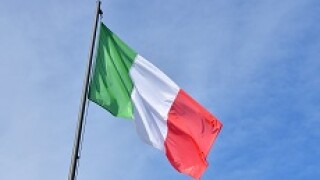Italian Sovereign
-
News that populist parties in Italy could be positioning to defy Europe over spending and debt levels has rattled some participants, causing some to change their strategies with derivatives.
-
Investors may be underestimating the chance of a Eurosceptic, populist government taking power in Italy, one expert on the country warned this week, as the Five Star Movement and Northern League on Thursday made strong progress on forming a coalition — without any mainstream parties. When the general election in early March failed to deliver a government, such a coalition was widely deemed the worst possible outcome for the market — particularly as one of the few policies the duo share is a looser fiscal policy.
-
Italy’s bonds took a hit on Wednesday afternoon after the country’s president Sergio Mattarella allowed the Five Star Movement and the Northern League — the best performing parties in the country’s general election in March — 24 hours to form a government before he appoints a non-partisan prime minister.
-
Investors are confident Italian spreads will stabilise after the sovereign widened versus Germany over fears of a potential second general election of the year. There was some evidence of that on Wednesday morning as the country’s yields reversed some of their losses.
-
Despite the political risk surrounding the formation of the Italian government, one asset manager believes its debt is better value than that of some of its peers in the peripheral Europe.
-
As negotiations over the future of Italy’s government begin in earnest, investors appear to be betting that political risk for the country has been overestimated.
-
As negotiations over the future of Italy’s government begin in earnest, investors appear to be betting that political risk for the country has been overestimated.
-
Investors are seeing the positives from last weekend’s Italian general election — despite a strong showing for populist parties and a hung parliament result — driving the 10 year BTP/Bund spread to a tighter point than it was before the vote.
-
The results of Italy’s general election on Sunday indicated swelling support for right wing populist ideologies in Italy, but the euro SSA market appears to have accepted the result with equanimity, although only one borrower has popped its head over the parapet so far.
-
An awful lot of capital and financial market participants are relaxed about Sunday's Italian election, predicting that coalitions and deadlock will remain a staple of Italy's political system. But others urge caution — and hedging — while the going is good for fear that complacency is taking hold, writes Costas Mourselas.
-
The issues surrounding Italy’s debt burden refuse to go away, but not all market participants believe that a change of government on Sunday would be able to stall or reverse the country’s recent economic progress.
-
Italy could retrieve half of the basis points it has lost to Spain in the run-up its general election next weekend — if the vote returns the most market-friendly result, according to a portfolio manager at a leading investment house. Spain, meanwhile, printed a 30 year benchmark with the second largest book ever for a euro sovereign deal in the tenor — another sign that the country is marching towards or already at semi-core status, said bankers.











